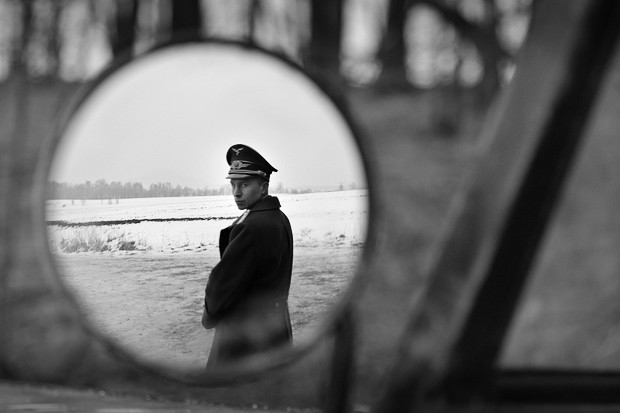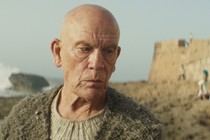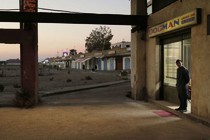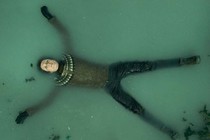SAN SEBASTIÁN 2017 Competition
The Captain and the morality of the pack
- SAN SEBASTIÁN 2017: From Robert Schwentke comes this fable, set in Germany in the final throes of the Second World War, about the value of justice when all traces of humanity have been lost

Few would have picked German filmmaker Robert Schwentke, whose last few films have all been American blockbusters (Red, R.I.P.D. and the two sequels to Divergent), as a likely contender for the Golden Shell at the 65th San Sebastián International Film Festival. But sure enough, his latest film, entitled The Captain [+see also:
trailer
interview: Robert Schwentke
film profile], is pitched somewhere between the multiplex and the arthouse, its brutality tempered by its power to disquiet — which may explain its presence here. And just in case you don’t find it chilling enough, just remember it’s based on a true story.
April 1945, two weeks before the end of hostilities. In some unnamed part of Germany, we meet Willi Herold (Max Hubacher), a soldier just nineteen years old who, far from his battalion and his military obligations, wanders through villages and along random paths, stealing whatever he can, until he comes across a discarded captain’s uniform. Without hesitation, he dons both the uniform and everything that comes with it. Herold begins to pass himself off as a captain in the Nazi army, entrusted, so his story goes, with heading up an investigation into the situation on the German front on the orders of Hitler himself. The captain soon finds himself flanked by soldiers: a loyal chap of a certain age who doesn’t ask too many questions (Milan Peschel) and, following an encounter in an inn where they are holding the proprietors hostage, a band of deserters led by Frederick Lau.
Thus, Herold turns his pack into a command unit, naming it in his own honour. Adopting an authoritarian approach to leadership, he takes advantage of the charred remains of a country ravaged by war, and the general distrust towards the soldiers who tore it apart, to exercise his own questionable form of justice. Shielded by his gleaming uniform, he ransacks everything in his path under the banner of a dubious morality that claims to be protecting Germany from those who would destroy it, while perfectly fulfilling that description himself. His mission even leads him to a position of power in a concentration camp where deserters are sent as punishment, and where an official blinded by rage (Bernd Hölscher) manages to see off the SS prosecutor to make way for his own reign of terror. Herold becomes an executioner for a cause that doesn’t exist, the murderous hand of a body foul and deformed, the mangy dog that kills because that’s what it’s programmed to do.
This hiding to nothing is delivered to us in crisp black and white, the work of Florian Ballhaus, to a blistering soundtrack that resonates to the electro-industrial beat of Martin Todsharow. Schwentke, as well as demonstrating an aptitude for thrills and explosions (he didn’t spend all those years making blockbusters for nothing), succeeds in girding his premise with sufficient power to hit high notes of surrealism (the tableaux vivants depicting the pack’s orgies of sexual and violent depravity) and social commentary (a fascinating epilogue so realistic it gives us the chills all over again).
The Captain, a co-production between Germany (Filmgalerie 451), France (Alfama Films) and Poland (Opus Film), is being sold internationally by Alfama Films.
(Translated from Spanish)
Did you enjoy reading this article? Please subscribe to our newsletter to receive more stories like this directly in your inbox.

























